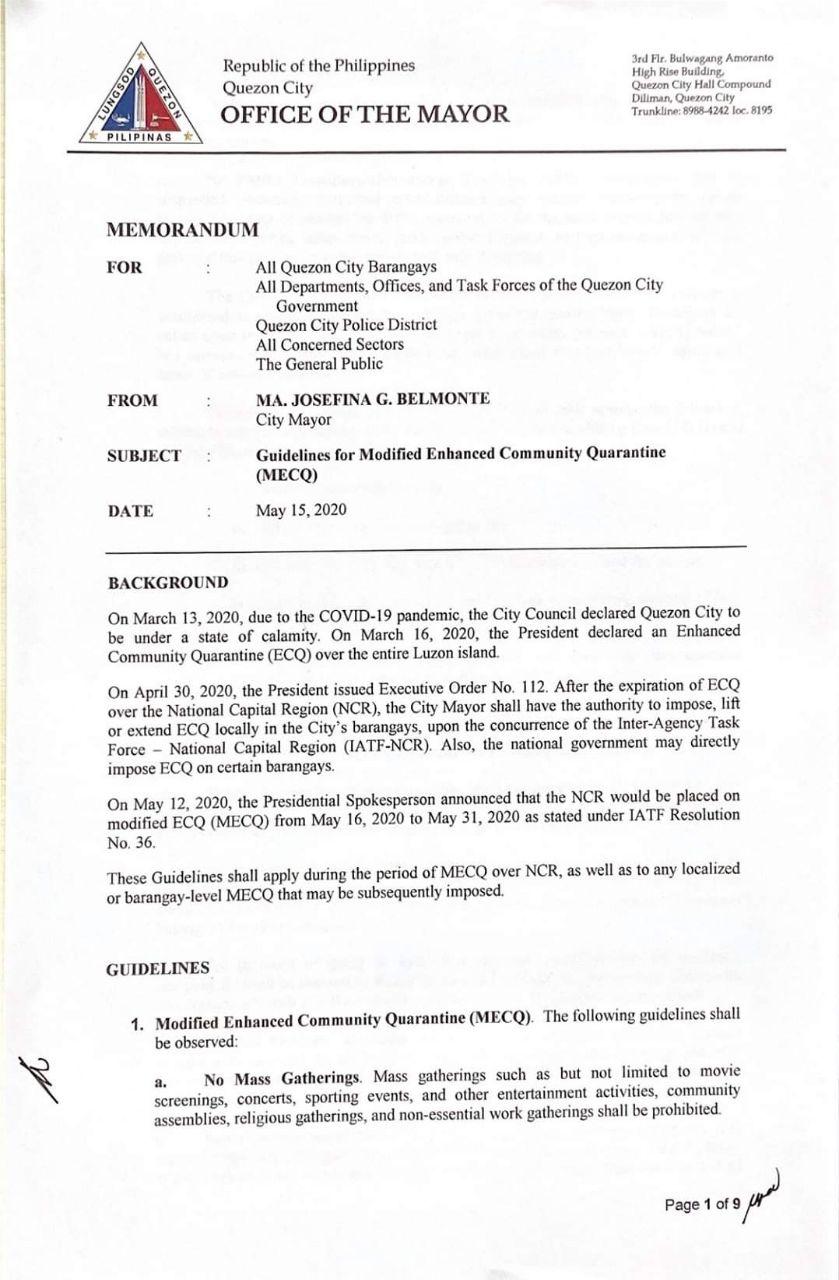
(Eagle News) – The Quezon City government on Friday, May 15 issued guidelines on the implementation of modified enhanced community quarantine (MECQ) in the city.
The guidelines, provided for in a memorandum issued by QC Mayor Joy Belmonte on Friday, May 15, “shall apply during the period of MECQ over NCR” from May 16 to 31, “as well as to any localized or barangay-level MECQ that may be subsequently imposed.”
The QC guidelines adopted the policies earlier approved by the Inter-Agency Task Force on Emerging Infectious Diseases, particularly on the prohibition on mass gatherings, suspension of physical classes, and permitted establishments.
– Tricyles allowed –
Public transportation remains suspended, except for tricycles, which may operate provided that they only have one passenger and no back-riders, install a transparent barrier between the motorcyle and the sidecar, and observe precautionary measures such as sanitizing and wearing of face masks.
Tricycle drivers were also encouraged to have themselves tested for COVID-19 at the city’s community-based testing centers.
– Quarantine passes still required –
Movement of QC residents will still be “limited to accessing essential goods and services”, and going to and from work in permitted establishments. Senior citizens, individuals 20 years old and below, and other “high-risk” persons will remain under strict quarantine.
A quarantine pass issued by the barangay will still be required when leaving home to buy essentials, but “should be honored event it is in the name of another person, as long as that person belongs to the same household.”
Employees of permitted establishments, on the other hand, may present their company IDs at checkpoints.
Limited outdoor activities, such as walking, jogging, and bicycling, will be allowed, with observace of social distancing and wearing of face masks.
– Disinfection day –
Establishments, on the other hand, are required to delegate one day per week for thorough disinfection, in addition to the adoption of measures for social distancing, thermal scanning, hand washing and wearing of face masks.
Supermarkets, wet markes, groceries, agri-fishery and veterinary suppply stores, drug stores, and other retail establishments are also required to extend their operations to 12 hours per day, “to mitigate overcrowding of customers in a particular time frame.”
All establishments with 10 or more employees are also required to submit to the QC Health Department its COVID-19 testing program for employees, at the employer’s cost. Those with less than 10 employees, on the other hand, may utilize the city’s community-based testing centers.
– Plans for the new normal –
“To the extent feasible, establishments shall adopt work arrangements that lessen face to face contact and physical interaction”, the guidelines stated.
These include work from home, telecommuting, virtual meetings, and compressed work week. High-risk perosns, shall be “required to physically report for work only when their presence is indispensable.”
“No contact facilities” such as online interfaces, electronic menus, pre-arranged services, and digital or cashless payment schemes should also be provided by establishments to their customers.
Eagle News Service








